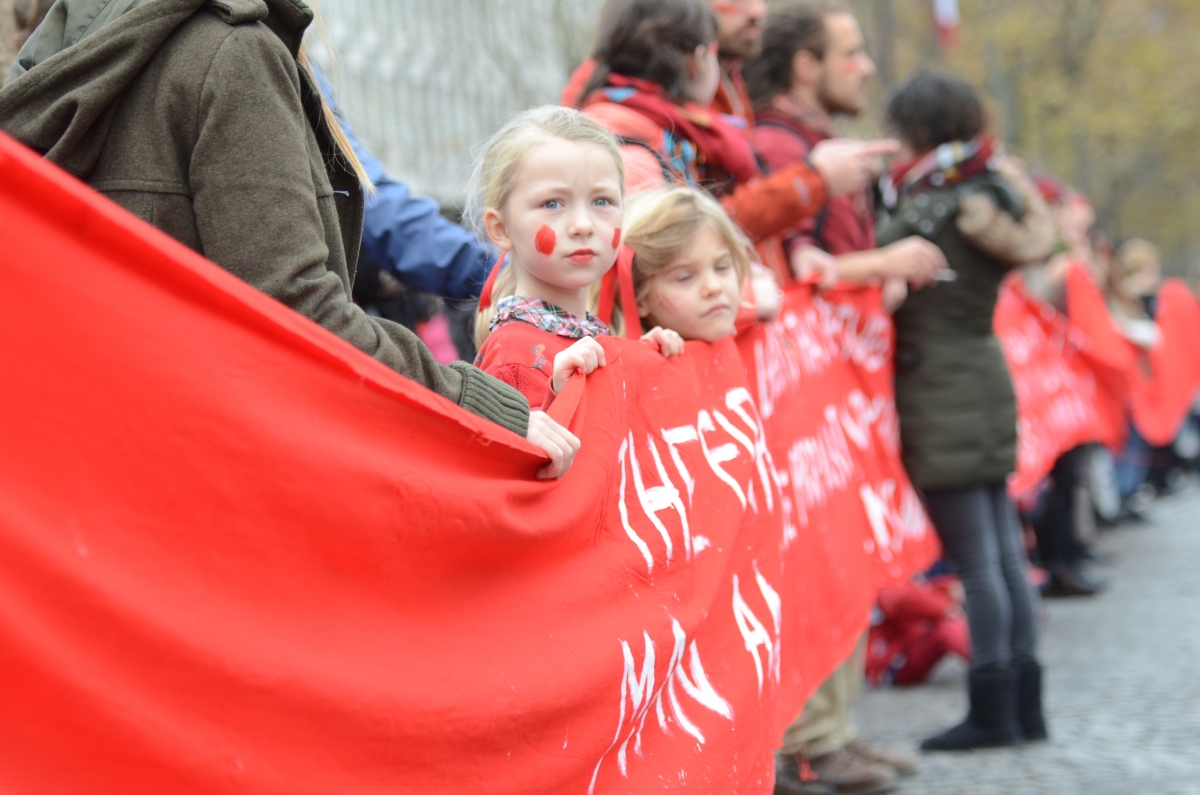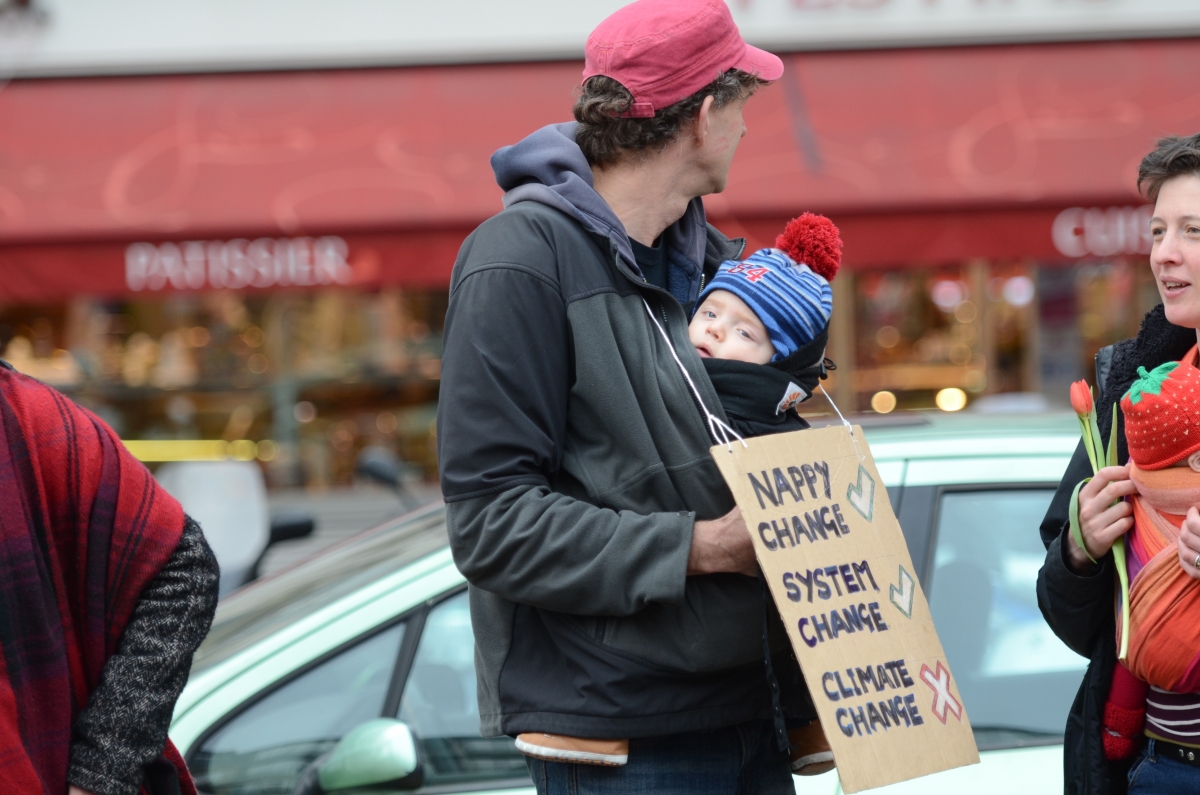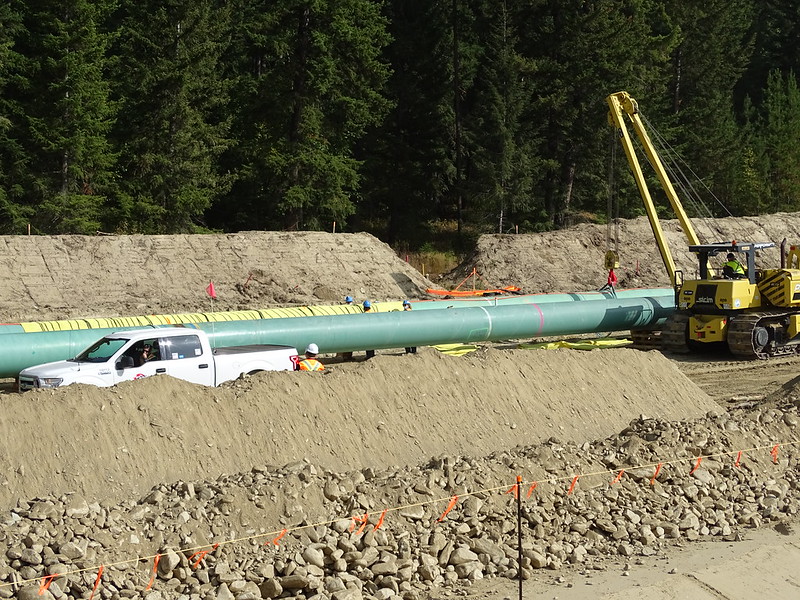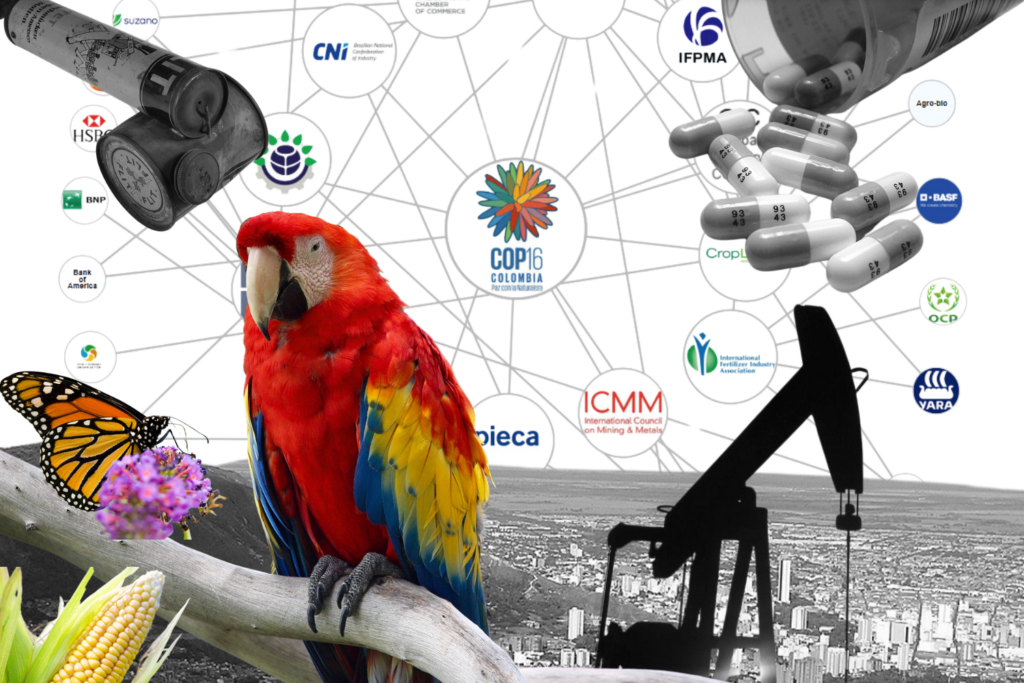BY KYLA MANDEL AND BRENDAN MONTAGUE IN PARIS
An historic deal to limit global warming to “well below 2C” and to make every effort to keep temperate increase to 1.5C will be agreed by 195 nations today in Paris.
The Paris Agreement will be ambitious, differentiated and legally binding, with five year review mechanisms to scale up efforts to reduce carbon emissions.
French President Francois Hollande said: “It is rare in a lifetime to have the opportunity to change the world. You have this opportunity so that our planet can live a long time, so that we can live a long time.”
After two weeks of continuous, intense negotiations, often going well into the night, the atmosphere in the plenary room this morning was positive and hopeful.
“The text is ambitious but it’s also realistic,” Hollande described, noting that it must be viewed in a global context and not read through the lens of individual interests.
“This is something that is unprecedented in the history of climate negotiations,” he said. “This will be a major leap for mankind.”
End Of Fossil Fuel Era
The Paris Agreement will not just be historic because it is the first of its kind but also because it signals the death-knell for fossil fuels with the language firmly grounded in science.
Laurent Fabius, the French COP21 president, said when opening the plenary on December 12: “We are almost at the end of the path and no doubt embarking upon another.”
“The reduction of greenhouse gas emissions has become the business of all,” he asserted.
In July, Hollande emphasised the need to keep 80 per cent of known fossil fuel reserves in the ground in order to achieve a “viable” global climate deal here in Paris.
Adopting a global warming target of 2C above pre-industrial levels – as the world seems poised to do today – will enable the final transition away from fossil fuels the President of France said.
And in fact, while this COP21 was underway in Paris there was news that global greenhouse gas emissions have peaked and are now falling. With a new, strong treaty signed perhaps this trend will continue.
Reacting to the Paris Agreement, Greenpeace’s Kumi Naidoo said: “The wheel of climate action turns slowly, but in Paris it has turned. This deal puts the fossil fuel industry on the wrong side of history.”
Ban Ki-Moon, head of the United Nations, said today: “[The deal] promises to set the world on a new path to a low emissions, climate resilient future.”
“We have to do what science dictates. We must protect the planet that sustains us,” he continued. “The solutions to climate change are on the table, they are ours for the taking now. Let us have the courage to grasp them.”
Civil Society Responds
Meanwhile in central Paris, activists gathered to call for stronger climate action. Many remain critical of the Paris Agreement and emphasised that governments must now turn words into action.
Noel Douglas, 45, a artist and designer from Peckham in London, was among the thousands of demonstrators who assembled close to the Arc de Triomphe and under the Eiffel Tower. Protesters voiced anger human rights were removed from the text and feared the ambition of holding climate change to 1.5 degrees would not be met. One leader vowed to occupy coal mines in Germany next year.
He said: “We were not expecting the agreement to solve the problem of a living planet and a future for us all. So now we need to find ways to bring more people into the climate justice movement and prepare for bigger battles ahead. We cannot trust corporations and the establishment to stop climate change.”
“This deal alone won’t dig us out the hole we’re in, but it makes the sides less steep,” said Naidoo. “To pull us free of fossil fuels we are going to need to mobilise in ever greater numbers… For us, Paris was always a stop on an ongoing journey. Ultimately our fate will be decided over the coming decades by the collective courage of our species. I believe we will succeed.”


Photos: Brendan Montague
Subscribe to our newsletter
Stay up to date with DeSmog news and alerts







